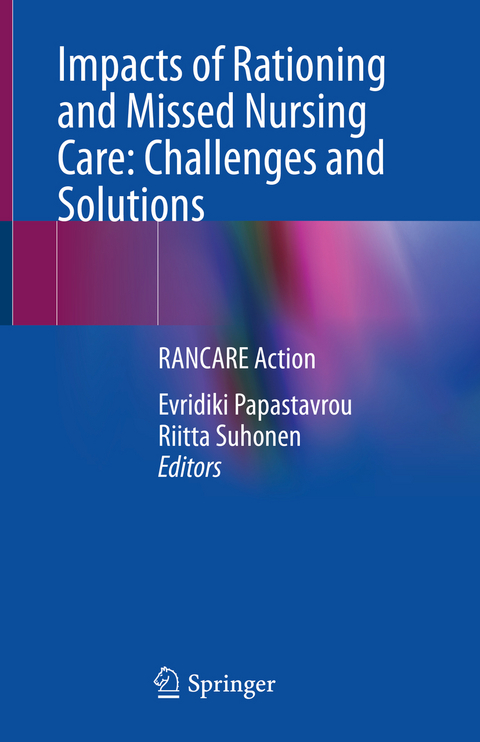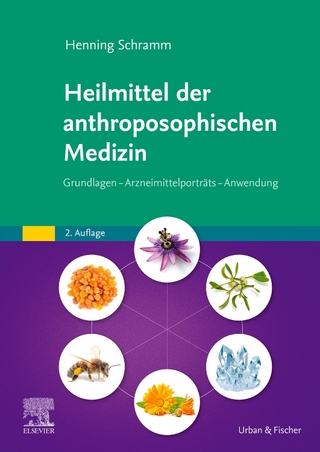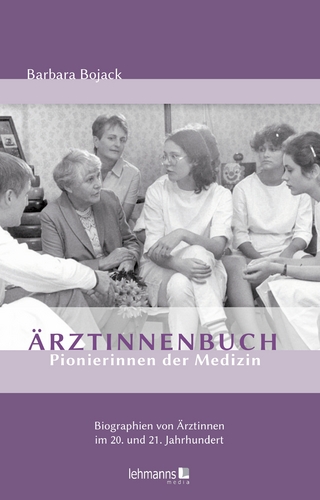
Impacts of Rationing and Missed Nursing Care: Challenges and Solutions
Springer International Publishing (Verlag)
978-3-030-71072-9 (ISBN)
This book reveals how economic restrictions and limited healthcare resources, combined with growing care demands due to advanced technology and more care options, have to a great extent contributed to increased workloads for healthcare professionals and put them under pressure to prioritize their work. This has led to the rationing of care, i.e., to decision-making processes on the allocation of scarce resources, especially human resources, and on which care activities take priority over others; in turn, these processes have led to unfinished or missed care, which has serious implications for quality of care and patient safety. Concerns related to nursing shortages and lean staffing practices have increased the awareness of the problem, as patient outcomes are affected by the quality and quantity of care that they receive and led to intensified scientific inquiry into this phenomenon.
This book is written by the members of the Rancare Cost Action group, whose aim is to facilitate discussion about rationing of nursing care based on a cross-national comparative approach with implications for practice and professional development. Four working groups investigated four areas for four years: a) the conceptualization of care rationing and methodological inquiries concerning the investigation of the phenomenon, b) exploration of possible solutions and intervention studies, c) the ethical perspective of care rationing and missed care including patients' rights and possible discrimination, and d) the educational implications, based on an exploration of the level of patient safety training and care rationing, as well as preparing guidelines for managers.
The book will be a valuable resource for nurses, allied healthcare professionals, managers, policymakers, researchers, ethical committees, and educators whose goal is to provide better and safer care.
lt;p>Dr. Evridiki Papastavrou is an Associate Professor at the Cyprus University of Technology, Department of Nursing and currently is the Dean of the School of Health Sciences and the Chair of the Cost Action RANCARE. She has a long experience as an Educator, Chair of the Cyprus Regulatory body for Nursing and Midwifery, Chair of the Department of Nursing, Chair of the Cyprus University of Technology Ethics Committee, member of the Cyprus National Bioethics committee and consultant to the development and evaluation of the Nursing Curriculums of several Universities in Cyprus as well as a mission member of experts of the TAIEX (A European body Technical Assistance and Information Exchange). Dr. Papastavrou is a recipient of 20 major research grants from the European Union, the World Health Organisation and other international and national funding bodies and organisations. Her research interest focuses on two main directions: a) the aspect of care as a multidimensional and complex phenomenon and b) the effects of care of chronically ill patients on their family carers, especially in dementia care. Her work also involves research in related areas such as nursing management and nursing education, and she has been the national coordinator of EU funded projects related to e-health literacy among nurses and care workers, the care of the elderly, the use of technology in the care of the elderly, and the Network on Privacy-Aware Audio- and Video-Based Applications for Active and Assisted Living. Dr. Papastavrou has a record of more than 5000 citations and 200 publications indexed in Google Scholar, with an h-index 36, i10-index 64 until January 2021. She also has published book chapters and articles in national scientific journals. Her educational activities include teaching at the Bachelor, Master's, and Doctoral program (Nursing Fundamentals, Introduction to Nursing science, Ethical and Legal issues in Nursing, Nursing Philosophy and Research).
Dr. Riitta Suhonen is PhD, RN and Professor in Nursing Science in the University of Turku, Department of Nursing Science and has a speciality in older people nursing science (Gerontological Nursing Science). She is FEANS (European Academy of Nursing Science, board member). She is the Director of the Doctoral Programme in Nursing Science (DPNurs) in UTU and the Vice Head of the Department of Nursing Science. She has a part-time position of Nursing Director in the Turku University Hospital and City of Turku, Welfare Division since 2016. Formerly, she has worked as a quality and development manager in a health care district, and as a ward manager and registered nurse in surgical care unit providing an understanding of the healthcare systems. She is experienced in leading and participating in international cross-cultural studies and currently is a co-researcher in many projects. She is a leader of the research programme called "Older Individuals' Health, Nursing and Services" which develops new knowledge and understanding of individual's health, nursing care and complex service systems for older individuals from the viewpoints of older individuals, professionals and organizations. Dr. Suhonen has been a principal investigator and coordinator of the Individualized Care Project since 2002, which evaluates the realisation of individuality in patients' care from the point of view of patients and nurses in different clinical fields including national and international parts. This project resulted in the Individualised Care Scale instrument, which has been translated and adapted for use in more than 30 countries. She is also the co-head of the research programme in UTU called "Ethical Healthcare and Nursing". Other research topics are nursing education and nursing management. She has expertise in older people nursing care, individualized care, care environment, management and leadership, ethics, self-management of older people, and support of independe
Chapter 1. Introduction.- Chapter 2. Understanding missed care: definitions, conceptualization, evidence and prevalence.- Chapter 3. Does rationing of nursing care presupposes an acceptance of missed care? Philosophical and legal aspects.- Chapter 4. Studying missed care: designs, instruments and reporting guidelines.- Chapter 5. An ethical perspective of nursing care rationing and missed care.- Chapter 6. Ethics of doing research within the context of missed nursing care.- Chapter 7.Interventions to reduce / limit MISSED CARE - state of the art and future perspectives.- Chapter 8. Patient safety education for nurses.- Chapter 9: Good management and clinical leadership for better patient outcomes.- Chapter 10. Synergies during the RANCARE Project: opportunities for networking and establishment of collaborations.- Chapter 11. Conclusions and the way foreword.
| Erscheinungsdatum | 04.06.2021 |
|---|---|
| Zusatzinfo | X, 201 p. 6 illus., 3 illus. in color. |
| Verlagsort | Cham |
| Sprache | englisch |
| Maße | 155 x 235 mm |
| Gewicht | 406 g |
| Themenwelt | Medizin / Pharmazie ► Gesundheitswesen |
| Medizin / Pharmazie ► Medizinische Fachgebiete ► Medizinethik | |
| Medizin / Pharmazie ► Pflege | |
| Schlagworte | Care left undone • Care omissions • Care priorities • ethical dilemmas • missed nursing care • patient safety • Prioritization • Unfinished care |
| ISBN-10 | 3-030-71072-6 / 3030710726 |
| ISBN-13 | 978-3-030-71072-9 / 9783030710729 |
| Zustand | Neuware |
| Haben Sie eine Frage zum Produkt? |
aus dem Bereich


